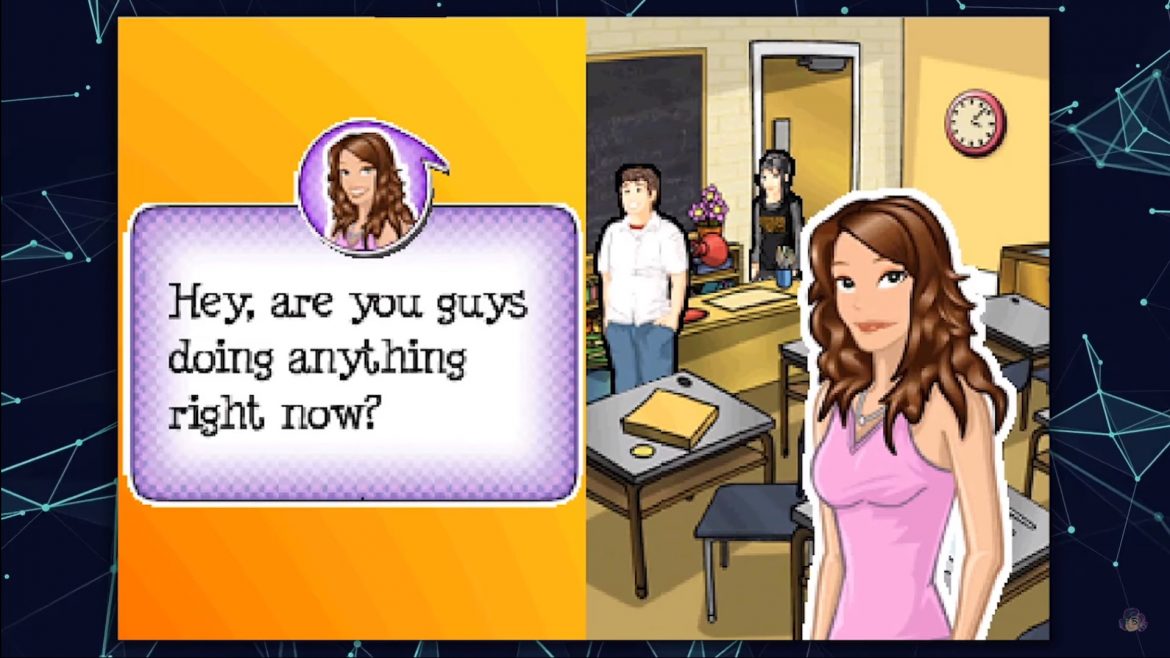Welcome back, readers.
Hello from Australia, where most of the country is back in lockdown. How are the rest of you doing? Something about a deadly heat dome? Apparently the Olympics are on? Okay.
This Month In Videogame Vlogging highlights the most compelling critical videos about videogames from the previous calendar month.
Strange Asides of Yesteryear
This month arrives with another tasty showcase of investigations into the experimental, forgotten and strange buried offshoots of videogame history.
-
Liminal Spaces in Disturbing Old Games – Nostalgia Nerd (21:49)
Nostalgia Nerd ruminates on the disquieting experience of liminality encountered in certain videogames from the 80s and 90s, through both the technology-bound repetitions necessitated by gameplay and the artistic approximations of real-world spaces. (Manual captions) [contains embedded advertising]
-
Othello Multivision retrospective pt. 1: A seriously @!#?@! footnote in Sega history | Segaiden #13 – Jeremy Parish (16:49)
Jeremy Parish plays and reviews the games of obscure licensed 1983/4 SG-1000 clone, the Othello Multivision. (Autocaptions) [note: flashing lights]
-
The Girl Games of Lost Media (Part 2) – Bobdunga (33:56)
Raven Simone continues with her documentary quest to find cancelled title Mean Girls DS. (Autocaptions)
-
Playstation Lain and the Weird World of Interactive CD-Roms – hazel (34:40)
Hazel recounts the interesting mechanics and storytelling of Playstation 1 iteration of Lain as an early title to explicitly tackle mental illness, while also considering how it fits into the oeuvre of experimental ‘interactive software’ of the era. (Autocaptions)
Identity Stories
For (or coinciding with) pride month, a couple of essayists reflected on how videogames helped them discover and explore their gender identities.
-
Celeste and Identity – It’s Boundo (15:40)
Boundo considers how Celeste’s use of mirrors helped her in her own journey of self-discovery. (Autocaptions)
-
Queer Fantasy | Finding Your True Self in Cyberspace – Transparency (49:57)
Transparency think about how MMORPG spaces, mechanics, and communities (such as those of Final Fantasy XIV) can allow players to explore personal questions of gender and sexuality. (Manual captions)
Colonial Reckonings
These next few videos are about games engaging with, critiquing, and sometimes enacting narratives of invasion and colonialism.
-
Umurangi Generation, Colonialism, UAPs, UFOs and Alien Invasion Stories – Super Bunnyhop (22:54)
George Weidman takes Umurangi Generation’s representation of colonial apocalypse as a jumping off point to think about the meaning and wish-fulfilment of alien invasion theories. (Autocaptions) [embedded advertising]
-
Spec Ops: The Line – A Literary Analysis – Games As Literature (1:12:33)
The Game Professor argues that the way Spec Ops: The Line explicitly positions and critiques player expectations for both choice and reward is fundamental to its anti-war messaging. (Autocaptions)
-
The Wendigo… In Video Games | Cryptid Month – Painticus (17:02)
Painticus reviews three games featuring the Wendigo, lamenting the misrepresentation and appropriation of myth from indigenous American culture. (Autocaptions)
Room for Improvement
Design elements can always improve, the next two videos remind us.
-
Is it actually hard to make textured hair for video games? – Polygon (12:29)
Josh Rios investigates the process and technology of hair artistry in videogames to find out why and how Marvel’s Spiderman: Miles Morales has such standout hair design. (Manual captions)
-
Can We Make Better Tutorials for Complex Games? – Game Maker’s Toolkit (21:26)
Mark Brown discusses some ways complex games might more engagingly teach their systems to players without frontloading them with an overwhelmingly off-putting amount of information. Hear, hear. (Manual captions)
Reading Along Fractured Paths
This section brings together a strong collection of pieces tied by their discussion (and/or technical use of) the splitting of perspectives and time.
-
Xalavier Nelson Jr. talks about sustainable development – Pixels for Breakfast (1:09:58)
Pixels for Breakfast chats with Xalavier Nelson Jr – head of Strange Scaffold studio – about indie development, the fractured experience of modernity, and some of the broader problems of workplace culture and financial risk in the industry. (Autocaptions)
-
The Game That Won’t Let You See All Of It – Jacob Geller (21:24)
Jacob Geller uses the fractured narrative of blink-driven Before Your Eyes to the think about the relationship of memory to artificially preserved moments in life, the films of Richard Linklater, and long-running documentary series 7-up. (Manual captions) [embedded advertising]
-
NieR: Automata critique – Pixel a Day (53:02)
Kat finds the themes, ideas and character development in NieR: Automata to not quite live up to the critical praise so often heaped on it. (Manual captions)
-
Three Endings Of My Time With Nier Automata – Talen Lee (21:58)
Talen Lee sketches the beginnings of three essays about interpreting Nier: Automata. (Autocaptions)
Polite Hype
These two essays mostly just have nice things to say.
-
A Love Letter to Level Editors – Chariot Rider (16:15)
Chariot Rider praises the inclusion of player-accessible level editor features. (Autocaptions)
-
The Flow, Story, and Overuse of Hades – Screen Therapy (14:55)
Courtney Garcia celebrates the balance of flow-state-inducing gameplay and immersive narrative that make Hades a (possibly-too-good) end-of-day stress reliever. (Manual captions)
Ohno
A sour note to end this month’s wrap-up.
-
Scott Cawthon Supported Trump, Now What? – Pim Is Online (17:34)
Pim ponders the fallout of revelations that Scott Cawthon – creator of horror series Five Nights at Freddy’s, games which Pim has previously lauded – supported Donald Trump. (Autocaptions)
Subscribe
Critical Distance is community-supported. Our readers support us from as little as one dollar a month. Would you consider joining them?
Contribute
Have you read, seen, heard or otherwise experienced something new that made you think about games differently? Send it in!


